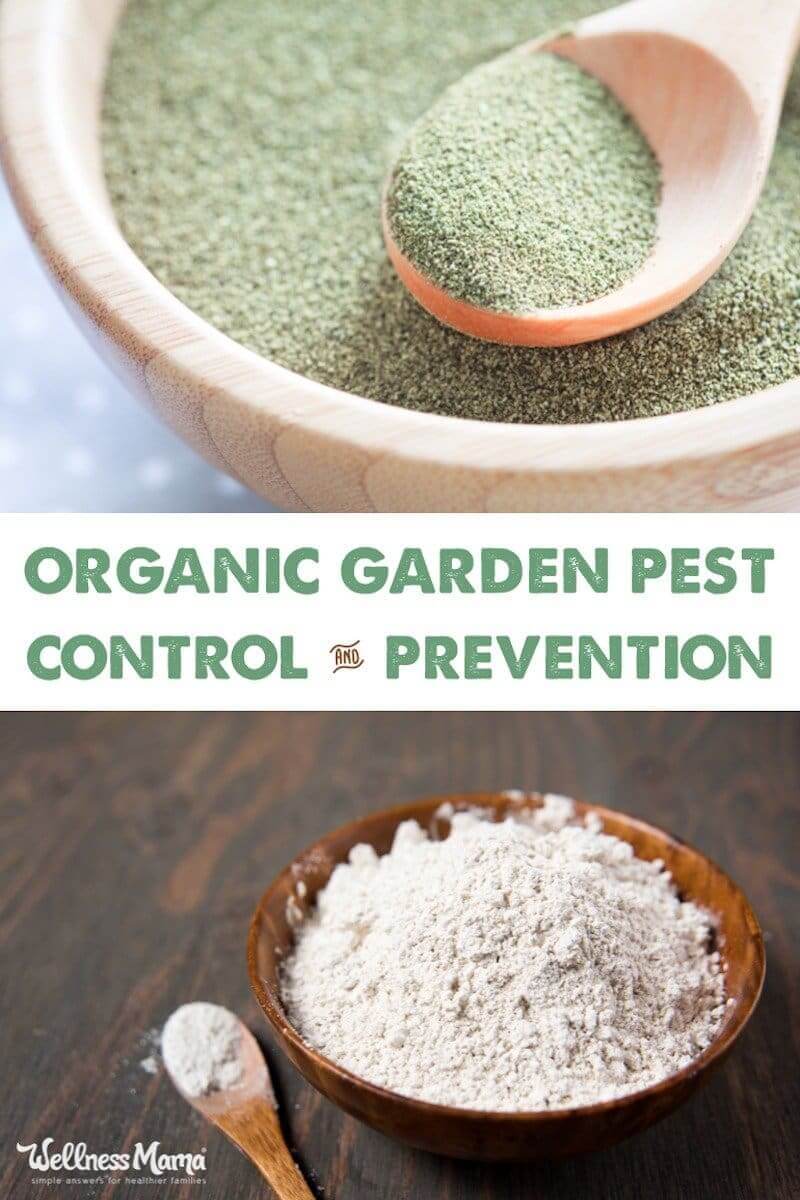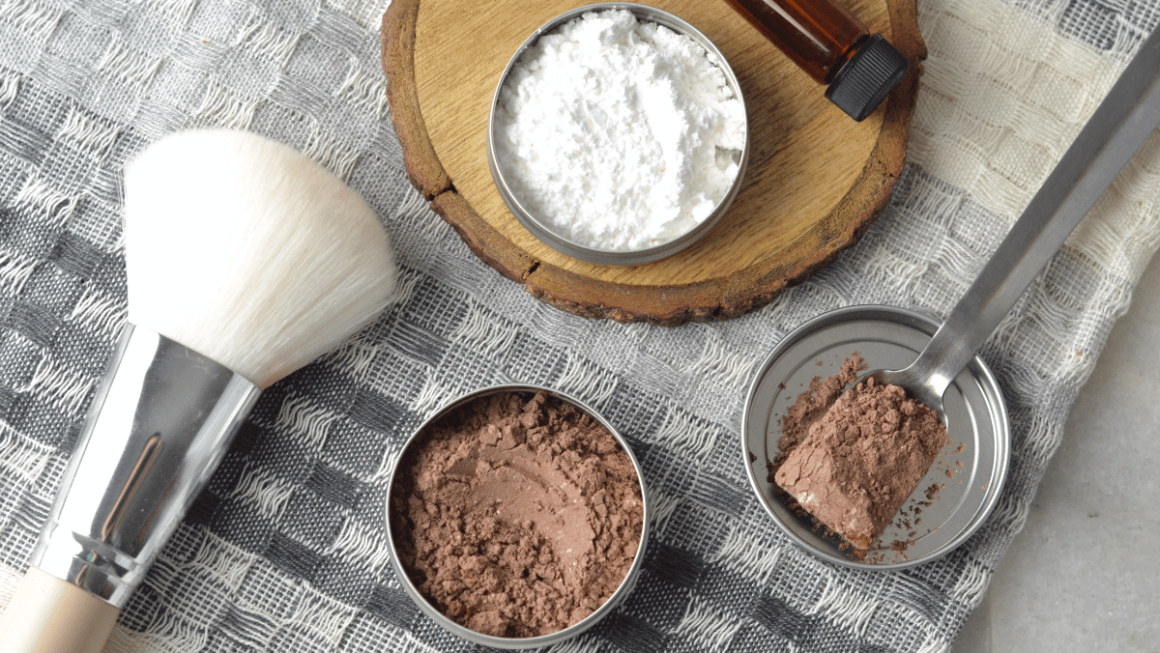Gardening will be a great technique to save money and eat the freshest food but additionally comes with its honest share of frustrations. From pest management to correct watering, there are a lot of components concerned, particularly in the event you’re utilizing natural strategies to keep away from artificial pesticides. Here are some natural pesticide choices so your physique (and the setting!) will thanks!
Fortunately, there are a number of methods to wage warfare towards pests with out resorting to dangerous pesticides and pesticides. Companion planting, correct spacing, and natural pest control strategies help guarantee a healthy garden.
The Battle of the Bug
Insecticides, herbicides, and different pesticides include their honest share of issues. Side results of publicity vary from pores and skin irritation to respiration issues (to demise in excessive instances!) It will depend on the pesticide getting used and the particular person utilizing it. Even if somebody doesn’t have any fast unwanted effects it’s nonetheless getting onto the food we’re eating. Plus it will get into the soil, our water, and the environment.
Some natural gardeners merely swap artificial pesticides with natural pesticides. But let’s take a look at the larger image first. Our yard vegetable garden is a half of the general ecosystem. Some bugs are useful for plants (like pollinators and ladybugs) and we really need them round. Botanical pesticides can generally additionally kill the nice bugs.
Before pulling out the natural insecticide, listed below are some issues to attempt first!
Organic Garden Pest Control: Is It Possible?
Controlling pests within the home garden is potential, however I’ll be sincere… it takes some work! Nothing crushes your gardening goals discovering your cabbages chewed to bits in a single day.
Step 1: Be Proactive!
Take the time to stroll by the garden for five minutes day-after-day. This is known as “scouting.” Look on the plants, flip over the leaves, and verify the soil for indicators of pest injury — eggs, larvae, chewed leaves, and many others.
If you see any injury indicators, act instantly. And yes, in the event you really need an natural garden, which will imply hand-picking and even squishing bugs. I desire the soapy bucket method. If you discover grownup bugs or larvae that wish to munch, take away them (or the leaf any eggs are connected to) and put them in a bucket of soapy water.
Hand-picking bugs and different pests out of the garden isn’t sensible for a large-scale drawback. But in the event you use the natural pest control steps above you’ll hopefully stop out-of-control conditions. Frequent and close statement means you’ll be prepared earlier than catastrophe strikes!
Step 2: Use Companion Planting
Some plants have natural properties that help others grow and deter pests when planted close by. Making use of these is a technique to increase garden manufacturing and match more plants into a smaller space. The following are a few in style companion plants:
- Basil – Basil planted with tomato improves manufacturing and taste. It’s additionally good for peppers and has been mentioned to repel mosquitoes. I plant basil all through the garden for its aroma and helpful properties.
- Borage – A great companion for tomatoes and cabbage because it repels each tomato hornworms and cabbage moths. It additionally helps strawberries and is useful to virtually every little thing within the garden. I plant all through.
- Chamomile – A great companion for cabbage, cucumbers, onions, and all of the brassicas. It improves taste and is a great herb to have readily available. It attracts helpful bugs and has delicate and exquisite flowers. Plus it makes a yummy calming tea!
- Dill – I wish to plant this with cabbages, cucumbers, lettuce, and more. It improves taste, helps repel pests, and is beneficial in making selfmade pickles! Dill additionally attracts parasitic wasps that kill bugs like aphids and tomato worms. It can get fairly large so I plant within the center of cucumber beds.
- Catnip – Planted close to squash and cucumbers it repels squash bugs and aphids. Steep the dried leaves in a tea to help soothe the abdomen, and spray the tea on plants as a pest control spray!
- Radishes – These will be planted all through the garden and below plants like cucumbers to discourage cucumber beetles.
- Marigolds – Planted all through the garden these help stop nematodes and repel pests. They’ll flower all summer time as long as you retain pulling the useless flowers off.
- Nasturtiums – Another great companion flower to tomatoes, cucumbers, cabbage, and more. The flowers are edible and are great in salads. They benefit melons and squashes as effectively.
- Onions – These will be planted freely all through the garden to discourage pests from cabbage, broccoli, tomatoes, strawberries, peppers, cucumbers, and more. Intercropping a few with all of these plants can significantly cut back garden pests.
- Sunflowers – Great companions and exquisite all through the garden. Plant with cucumbers, beans, and vining plants to offer a trellis. They’re hardy and a great lure crop for aphids and different pests. They sometimes produce lots of their own seeds to make use of subsequent 12 months.
There are many different great companion plants. Check out this chart for another concepts.
Step 3: Use Homemade Pesticides and Repellants
Companion planting is useful, however in the event you’ve already planted and are having bother with pests, some selfmade pesticides will be useful:
- Kelp tea helps deter Japanese beetles and aphids and nourishes plants. Spray as soon as a week or so earlier than and during infestation occasions.
- A garlic and sizzling pepper spray (see recipe beneath) repels many garden bugs and wildlife pests. It’s most likely essentially the most cheap option to make at home and isn’t dangerous to you whereas making use of. Use as soon as a week or more for a number of weeks earlier than and during infestation occasions.
- Lemon balm tea repels squash bugs and aphids. Apply 2 or more occasions a week as needed.
- A couple of teaspoons of baking soda in water can help stop and deal with fungus and powdery mildew on plants. Use as a preventative and acute remedy as needed.
Hot Pepper Garden Pest Spray Recipe
This is my go-to selfmade garden pest control spray and it really works rather well!
- 2-4 cloves garlic
- 4 cayenne peppers (or hotter peppers)
- 2 TBSP olive oil (or different liquid oil)
- 1 TBSP Castile soap
- 2-3 cups sizzling water
-
Put garlic, peppers, oil, cleaning soap, and water in a blender and mix on high for a number of minutes.
-
Leave in a bowl or pitcher in a single day or for no less than 12 hours to accentuate the consequences of the garlic and peppers.
-
Strain by a towel, cheesecloth, or strainer and retailer in a glass jar.
-
To use, pour about 2 Tablespoons into a 16-ounce spray bottle (or 3 TBSP in a 24-ounce) and shake effectively.
-
Spray immediately on plants as needed… I like to recommend carrying gloves!
-
Use as typically as needed for preventative and pest-controlling results.
If you don’t need to make your own they do make store-bought natural pepper sprays however I desire the selfmade model to keep away from the paraffin wax they include (constituted of petroleum). That mentioned, it’s nonetheless higher than spraying your garden with pesticides! Just be sure to clean produce effectively and likewise use a vegetable wash.
Diatomaceous Earth
Diatomaceous earth is a good all-purpose prevention and remedy for any insect pests. Use with warning because it kills indiscriminately. I exploit DE primarily if I see slugs, snails, fleas, or insect larvae on plants, because it’s particularly efficient on these. Just sprinkle on plants as needed and reapply after watering or rain.
I purchase food-grade DE and likewise use it for indoor pests like ants and as an inner cleanse for parasites in people and animals. This is the brand we use.
Homemade Soap Spray Recipes
Another natural pesticide option is solely spraying soapy water on the bugs. You don’t need to use dish cleaning soap although as it may well hurt plants. Instead, go for pure castile soap. If you employ the sort with added peppermint important oil it additionally helps to chase away opportunistic bugs!
- To make insecticidal cleaning soap spray use 1/4 teaspoon (or up to 1 Tablespoon) of castile liquid cleaning soap for each quart of water. Spray this immediately on bugs to help break down their exoskeleton.
- You also can make a cleaning soap and oil spray that some take into account to work higher than cleaning soap alone. Use 1 teaspoon of castile cleaning soap to 1/3 cup of oil and blend effectively to make your soapy spray base. Use 1-2 teaspoons of this per 1 cup of water in a sprayer.
Test a small spot on the plant earlier than you soak all of the leaves. Plants like beans, cucumbers, and peas don’t like cleaning soap spray. This spray helps kill the next pests:
- Mites
- Aphids
- Thrips
- Scale bugs
- Whiteflies
- Leafhoppers
- Mealybugs
Store Bought Natural Pesticides
If you favor to purchase one thing more garden facilities have natural pesticides accessible. Neem oil sprays are an more and more in style pest control option. It comes from the neem tree which has a long historical past of use in heading off pests and as a fungicide to assault mildew. It’s additionally biodegradable and gained’t hurt birds and pollinators.
The least expensive method to purchase it’s as a focus and blend it with water your self. If you’ll be able to’t discover some domestically you’ll be able to get it online here.
Another natural pesticide option is pyrethrum spray. It’s a stronger pesticide naturally produced by chrysanthemum flowers. While pyrethrum has been used because the 1800s, newer variations typically use artificial pyrethrins, the energetic elements within the flowers. These artificial variations are more poisonous and stick round longer within the setting.
While it’s a heavy hitter and technically secure for natural gardening, there are safer natural pesticide choices.
Step 4: Help Plants Stay Healthy by Fertilizing
Strong plants resist undesirable bugs more simply. Growing robust and healthy plants is an important step in defending your garden from pests.
- Kelp tea is just not solely a great technique to naturally control garden pests, however it’s additionally a great foliar spray. Spray it on the leaves to nourish your plants (simply don’t spray during the warmth of the day). Sprinkling powdered kelp round plants also can have a nourishing impact.
- Nettle tea is one other plant-nourishing option to spray on plants. You also can add dried nettle leaves on to the soil or compost.
- Yarrow flower tea provides further vitamins to plants. Use it to water your plants with. You also can sprinkle yarrow flowers all through the garden that are mentioned to have a pest-repelling impact.
- Fish emulsion is a natural fertilizer that may be sprayed on the leaves of plants to help promote growth. It’s particularly good for tomatoes. It smells terrible however could be very efficient!
- Bone and blood meal (like this) are high in nitrogen and really fertilizing to plants. Organic choices can be found and will be great if you’re snug utilizing them.
Step 5: Use Row Covers
Many flying pests see your garden as their preferrred egg-laying station! Keep moths and different bugs from touchdown in your plants through the use of row covers. Floating row covers (material stretched over wire hoops) let mild and water by however maintain out pests who need to devour your treasured produce.
Row covers are fairly sensible in small gardens and even lengthen the rising season a bit. It isn’t essential to cowl every little thing, however notably susceptible crops like potatoes, squash, and cabbage will benefit. They help defend towards caterpillars, cabbage moths, and cabbage worms.
Netted covers also can help defend towards squash borers. Just maintain the covers on till the squash blossoms are available in to discourage borers.
Bottom Line on Natural Pesticides
It takes a little more work and planning, however it’s very potential to garden with out poisonous pesticides. The most important factor is to be observant so pests don’t have a probability to take over. The tasty (and healthy!) food you grow is effectively price it!
Do you garden organically? What are your finest ideas and tips for garden pest control?












